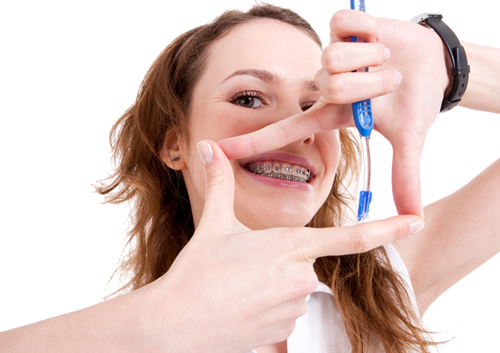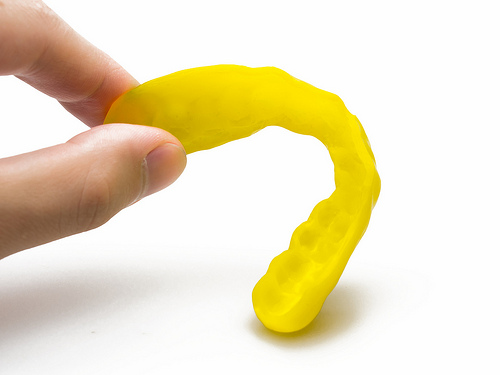April 16th, 2020

During the early days of the environmental awareness movement, those who demonstrated against pollution, toxic chemicals, and the general public health were known as hippies. The early 1970s were a time of change, and assertions that we needed to pay more attention to the Earth's atmosphere were generally dismissed. But within a couple decades, it had become clear that the previous generation was right; the citizens of the world needed to become more environmentally conscious.
Many people feel that they can't make a difference if they don't do something big. But caring for the environment doesn't have to be an all-or-nothing concept. In fact, the little things you do can add up to make a great impact, especially in our community. Here are a few ways you can help the environment on Earth Day, April 22nd and all year around.
Four Small Ways to be Environmentally Friendly
- Recycle Your Textiles. Nearly 21 million tons of textiles are added to American landfills each year, according to the Environmental Protection Agency. Donating your unwanted clothing to a secondhand store or an organization that repurposes fabric helps cut down on solid waste and conserves natural resources.
- Reduce Usage of Disposables. Plastic bottles and bags, disposable diapers and other things we can use and toss out are convenient, but they're not necessary. Simply choosing to replace one of type of disposable with a reusable product can help you cut down on waste that has a large negative impact on our environment.
- Conserve Water. If everyone in the United States turned off the water while brushing their teeth, more than 1.5 million gallons of water could be conserved. Turn the water on long enough to wet your toothbrush for brushing and rinsing, and then immediately turn the water off again.
- Turn Off the Lights. Flip the light switch to "Off" if you're going to leave a particular room for 15 minutes or more. This will conserve energy on incandescent light bulbs and cut down on cooling costs.
It's not necessary to be an activist or install solar panels all over your home to help the environment. Although you can do these things, the little everyday measures make a big difference in helping to conserve energy and the environment, while reducing your carbon footprint. Our team at Crichigno Orthodontics wants to remind you to celebrate Earth Day and help the environment, knowing that it will benefit your and your children's generation.
April 9th, 2020

A bright, beautiful smile is often achieved with braces. The time you spend wearing braces is an investment in the good health and appearance of your smile. However, Dr. Nicola Crichigno and our staff know that having braces on your teeth can pose challenges. Many of these challenges are commonly faced by all who wear braces, such as flossing, getting food stuck in your braces, and bad breath.
Today, let’s address bad breath and what to do about it. There’s no reason you have to shy away from conversation for fear that you’ve got bad breath.
Fresh Breath Tips for Braces Wearers
- Eat a Healthy Diet. Unhealthy foods that are laden with sugar can contribute to bad breath. Stick with healthy produce, protein, grains, and dairy found on the list of foods your orthodontist says are safe to eat with braces.
- Drink Non-Sugary Beverages. Likewise, steer clear of sugary sodas and juices for the same reason. They contribute to bad breath.
- Stay Hydrated. A mouth that’s continually dry can lead to bad breath by inhibiting your production of saliva. Regular production of saliva removes bacteria and excess food from your mouth, both of which cause bad breath.
- Brush Often. Brush your teeth and tongue first thing in the morning, after each meal and snack, and before you go to bed, to remove food particles and bacteria that cause bad breath.
- Don’t Forget to Floss. Flossing with braces might seem tricky, but it is a necessity. Ask Dr. Nicola Crichigno to show you the best way to floss effectively with braces.
- Mouthwash Use. Use the mouthwash recommended by Dr. Nicola Crichigno. For the best results, swish the mouthwash around in your mouth for 30 seconds.
- Get Regular Cleanings. Regular dental exams and cleanings are more important when you have braces. Cavities can delay your treatment progress, so be sure to visit your dentist every six months.
Practice Good Hygiene Daily
Good oral hygiene practices are important every day, whether you wear braces or not. But they become even more important during the months you wear braces. In addition to your regular orthodontic checkups, see your general dentist for cleanings and exams.
Together, you and our Stoney Creek team will keep your mouth healthy and fresh during and after your orthodontic treatment.
April 2nd, 2020

It's springtime and it's again time to remind our patients at Crichigno Orthodontics to protect their faces and pearly whites while out on the field playing sports. According to the National Youth Sports Safety Foundation, children, high-school athletes, and adults have more than 5,000,000 teeth knocked out in sporting events annually throughout the United States and Canada.
If you are planning on participating in spring sports, it’s imperative to have a proper-fitting mouthguard. Mouthguards can prevent chipped or broken teeth, lip and cheek injuries, jaw fractures, mouth lacerations and even concussions.
Having a mouthguard can make the difference between losing your teeth or not, and because many of our patients who play high school sports have jaws that are still growing, last year’s mouthguard may no longer fit as it should. Dr. Nicola Crichigno and our team at Crichigno Orthodontics can fit you for a new guard.
To learn more about mouthguards or for general questions about your treatment at our Stoney Creek office, please give us a call!
February 27th, 2020

We all want to live our healthiest lives. We know that part of keeping ourselves healthy is regular visits to our Stoney Creek office for checkups and necessary dental work. And that dental work might require an X-ray. Should the amount of radiation in an X-ray concern us?
First, it is helpful to know that the radiation you are exposed to from a dental X-ray is very small. A set of most bitewing X-rays, for example, produces an amount of exposure about equal to the amount of background radiation we get from our normal surroundings in a typical day. We also take care to minimize your exposure even further by using specially designed equipment and protective shielding, and taking only necessary X-rays. If your child is very young, if you are pregnant, or if you have other health concerns, talk to us about the advisability of X-rays and whether they are essential to treatment.
Second, much of our careful general examination will be done visually. Dr. Nicola Crichigno can check for cavities and other problems and assess tooth and gum health. But sometimes, there are conditions which can’t be detected without an X-ray.
- Decay that isn’t visible in an oral exam—if a small cavity develops between teeth, or is hidden underneath a filling, an X-ray will catch it before more damage can take place.
- Infection—An X-ray will reveal infections such as abscesses that can damage both bone and tooth, and gum disease that has harmed bone and connective tissue.
- Orthodontic and periodontal issues—We might need an X-ray to determine the spacing and development of your child’s incoming teeth and maturing jaw structure, to properly create braces for adults or children, or to place an implant within the jawbone.
- If you are a new patient, it is helpful to have complete X-rays taken as a baseline of your current dental health and previous dental work. This baseline allows us to track tooth and jaw development, if necessary, and to evaluate any future changes that might be a concern. (If you have had X-rays taken in another office, we can help you have them transferred so we have a background of your dental history.)
Even though the radiation from a dental X-ray is minimal, be assured that we will never request any unnecessary procedure. When we recommend an X-ray, we do so to make sure there is no decay or infection threatening the health of your gums and teeth, and that we have the essential knowledge we need to treat any dental, periodontal, or orthodontic condition. Because we all want to live our healthiest lives—and part of that healthy life is both active and proactive dental care.





 Website Powered by Sesame 24-7™
Website Powered by Sesame 24-7™